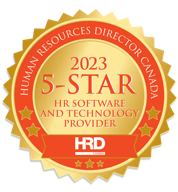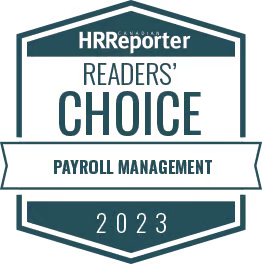Transform talent management
No matter your business’s size or industry, we can help you excel at recruitment and onboarding, learning and development, succession planning and more.

Recruiting & hiring talent
Recruit the best people for your organization
ADP’s wide range of talent solutions help source in-demand candidates. We can assist you with:
- Recruiting — Create engaging job posts and grab the attention of top candidates
- Hiring — Harness the power of technology, data and services to simplify the hiring process
- Onboarding — Equip new employees or those changing positions with a digital, consumer-like onboarding experience

Talent management & growth
Develop the best teams and further your employees careers
Top-performing organizations depend on high-performing leaders and teams. Give your leaders the tools they need to be effective with powerful, easy-to-use platforms and programs:
- Performance — Align individual, team and organizational goals; optimize achievement via modern feedback and coaching
- Succession — Plan for succession with a focus on individualized career development
- Skills Development — Support employees with personalized learning, coaching and training
- Compensation — Create competitive and equitable compensation strategies

Talent management strategies
When your people connect with their work, they are proven to be more engaged and productive. From acquisition to activation, ADP can help you:
- Create an engaging candidate experience that conveys your unique employment brand and culture from the very start
- Make it simple for new employees to connect to their teams and have a defined path to speed their time to contribute
- Identify and develop every employee’s unique strengths and competencies, helping them to work with purpose

Talent management process
Save time and reduce administrative burden. Shift from manual processes to an automated, mobile experience that your employees will want to use. Save time by:
- Simplifying the task of creating and posting jobs
- Improving the timeliness of reviewing candidates to speed time to hire
- Onboarding new employees efficiently and connecting them to colleagues and leaders — even before their first day — to jump-start productivity
- Providing employees and leaders with check-ins, continuous feedback and learning within the flow of work
Talent management system FAQs
What is a talent management system?
A talent management system is a comprehensive software solution that covers all areas of talent management, including hiring and onboarding, performance management and evaluation, learning and development, compensation management, and succession planning.
These systems are designed to help organizations and their HR departments achieve their long-term business goals by prioritizing their employees – or talent. Unlike a traditional Human Resource Management System (HRMS), which focuses on transaction processing and administration, a talent management system provides solutions that are centred around employees.
Who uses a talent management system?
A talent management system may be used by nearly all members of an organization, such as recruiters, candidates, human resources, managers, and employees.
What business problems can a talent management system resolve?
A talent management system may help resolve common business problems such as:
- Costly and time-consuming hiring, performance management, payroll, and other HR activities
- Lack of data integration, resulting in isolated data repositories
- Engagement from managers below desired levels
- Increasing employee turnover
- Open roles struggling to attract skilled applicants
- Continuous monitoring to ensure compliance with federal and provincial employment laws
Why use a talent management system?
A talent management system may help businesses in the following ways:
- Integration of data:
As data collection becomes increasingly common, the storage and accessibility of that data often remain disorganized. It is not unusual for data to be stored in separate systems, making it challenging to access and analyze.
An integrated talent management system can help organizations align all core HR processes, from recruitment to ongoing performance assessments and benefits management. This facilitates data sharing and connectivity across the organization, providing HR with a comprehensive view of employee information. - Better recruitment:
A talent management system may help reduce time spent on repetitive tasks, such as scheduling interviews, responding to candidate inquiries, and confirming appointments, as well as posting job openings, tracking applicants, and handling job offers.
By minimizing time spent on repetitive tasks, recruiters and hiring managers can focus on more important factors of the recruiting process like developing a rapport with the candidates. - Retaining top talent:
Organizations often place emphasis on recruiting and attracting top talent; however, it can be equally important to ensure the retention of current employees.
Investing time, money, and effort to recruit talent, only for them to feel disengaged once they come on board may prove to be costly. A talent management system encompasses every aspect of an employee's status within the company – including their performance, objectives, training, capabilities, future aspirations, and compensation – providing all the necessary information to ensure their satisfaction and involvement.
How to choose the right talent management system for your organization?
To determine the right talent management system for your organization, you may consider the following:
- Your organization’s needs:
It may be beneficial to opt for a talent management system that not only addresses your immediate requirements but also anticipates future needs. The goal is to find a solution that grows with you, thereby avoiding the inconvenience of changing systems later because the initial choice fails to accommodate evolving demands. - The right provider:
While selecting a system with the necessary features for your organization’s needs can be important, finding the right software provider can be equally important. This is because investing in a talent management system typically means making a long-term commitment to the software provider as well.
It may be beneficial to ask yourself: are they responsive to all your inquiries? Do they provide you with all the necessary information? What can you expect in terms of service and support after the system is implemented? Do they have reliable client references? What Canadian-specific expertise do they have? - Product/service demos:
Request demos from your selected vendors to observe the software's functionality and evaluate its ease of use.
This may also give you the opportunity to further understand the system and ask questions about implementation, training for users, additional expenses, etc.
How is a talent management system deployed?
Currently, the majority of talent management systems are hosted on cloud platforms. This approach offers greater scalability and improved features such as security, storage, and additional functionalities.
Awards and recognition






How ADP® Talent Management works for others like you

I really enjoy ADP Workforce Now Comprehensive Services with its fully outsourced HR shared service. It’s done very well for the company and there’s more to the product that we haven’t tapped yet — we’ll get there eventually. I also like that there are ongoing plans for product enhancements — this is important to my business partners. It’s been a great program. I look forward to continuing to work with the ADP team.
Terry Sugar,
VP of Finance
Farmbro Inc.
From a recruiting perspective, I think ADP has been a great enhancement for our team. The processes we use are more clearly defined, both externally and internally. And also the candidate experience has been better.
Daisy Genz,
Talent Development Leader, North America
CNH Industrial
Find the Perfect Solution
We’re here to find the solution that fits for your business needs.
Call 866-622-8153 or complete the form below:
Your privacy is assured.
Articles & Insights

insight
3 Ways to Elevate Your Talent Management Strategy with Workforce Data

insight
How HR Can Use Technology to Impact Career Development

insight




